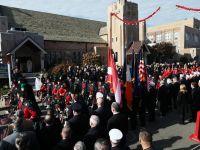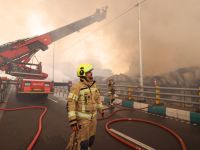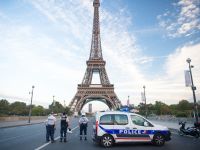When Qatar was first selected to host the upcoming WTO conference, organizers hoped that its remote location would discourage anti free-trade activists from attending. However, events of the past two months have created an entirely new set of concerns. If Qatar is able to maintain a safe environment, its global image will escalate.
The tiny Gulf state of Qatar is rolling out the red carpet as it prepares to host the World Trade Organization (WTO) ministerial conference, scheduled for November 9-13. During these four days, roughly 4,500 people, including 2,000 government delegates, 700 journalists and representatives of 600 non-governmental organizations will congregate in Doha to discuss contentious issues surrounding trade liberalization.
Until last week, the choice of Qatar as host was under review due to security concerns, and Singapore and Geneva were being considered as alternative venues. But WTO director general Mike Moore finally ended speculation when he arrived in Doha last Monday to voice confidence in Qatar.
Qatar insists that it will manage security with its own resources, despite having only several thousand policemen and 12,000 troops—most of which consist of Yemeni soldiers on contract, and military “advisers” from France, Egypt and Pakistan. Following the events of September 11, security fears quickly surfaced about the Gulf Arab emirate, suddenly too close to Afghanistan for the comfort of many.
Despite these security concerns, Qatar hopes that the WTO conference will enhance its international profile, which currently rests heavily on being the home to Al-Jazeera, the television station used by Osama bin Laden to broadcast his speeches.
Qatar is sure to boast of its ambitious capital investment program, which aims to transform the country into the world’s premier supplier of liquefied natural gas (LNG) by 2005. Qatar Petroleum expects its financing needs for the third and fourth Ras Laffan LNG Company (RasGas) trains to total $10 billion, which would raise the emirate’s LNG production capacity to 30 million tons per year. 20 international banks are reported to have pre-qualified to lead arrange the financing of the third RasGas train.
It might be more than mere coincidence that as it hosts a global summit on trade liberalization, Qatar is reforming its own economic policies in a bid to attract more foreign investment. Qatar hopes that foreign investment inflows become more diversified across multiple sectors. Last year, $2.7 billion (or 89 percent) of all foreign investment was directed to the chemical, basic metal, and non-metal mineral industries.
The country recently announced the establishment of the Higher Council for Investment, which followed the enactment of numerous bilateral agreements to avoid double taxation. These initiatives may have already borne fruit, as several Chinese firms have expressed interest in investing in Qatar’s soft drink and steel sectors.
Next week, Qatar will be thrust onto the global stage, as it plays host to the high-profile WTO conference. While this situation may be seen as a dangerous opportunity, Qatar’s international profile will skyrocket if events proceed smoothly. However, the outbreak of violent riots or other bloodshed could tarnish Qatar’s image for years to come. — (menareport.com)
© 2001 Mena Report (www.menareport.com)







